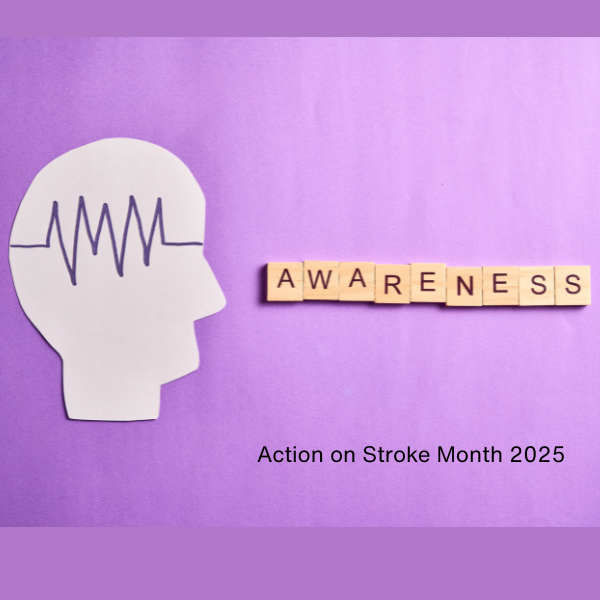National Maternity Investigation: Interim R...
Gastric Cancer Negligence & Misdiagnosis Claims Solicitors.
Receiving a diagnosis of cancer can be life changing for many people, especially if your cancer was diagnosed at a late stage.
With most types of cancer, the later the diagnosis occurs, the worse the long-term prognosis will be. If there is a delay in receiving an accurate diagnosis, for example due to medical negligence, it can further enhance the suffering endured by you and your family.
Gastric cancer affects the stomach, and according to Cancer Research UK it accounts for around 6700 cancer diagnoses per year. The symptoms of gastric cancer can be similar to less serious illnesses, such as gastroenteritis, which can potentially lead to misdiagnosis occurring.
When gastric cancer is misdiagnosed, it can cause a delay in treatment, or can lead to the wrong treatment being administered. Untreated gastric cancer, often referred to as stomach cancer, can progress and spread to other parts of the body, meaning that the treatment options may need to be more intensive, or even potentially rendering the disease untreatable.
If you have received negligent care for your gastric cancer, which has led to your condition worsening unduly, you may be entitled to compensation. Likewise, if you have sadly lost a loved one after a stomach cancer misdiagnosis, you could claim on their behalf. Our experienced and empathetic medical negligence team are on hand to discuss your case and offer advice and guidance, so contact us today.
How Can Gastric Cancer be Misdiagnosed?
The symptoms of gastric cancer can be similar to those of several other conditions and illnesses – many of which are less serious than cancer – which can sometimes give rise for a misdiagnosis to occur.
There are a number of potential ways in which gastric cancer could be misdiagnosed, including:
- An admin error in which you receive the wrong test results
- Failure of your GP to refer you for further testing
- Failure of the doctor to carry out the necessary tests
- Failure to accurately read and interpret test results
- Failure to take risk factors into account
- Dismissal of patient’s symptoms by the GP or specialist
- A surgical error in which the tumour is not fully removed
- Post-surgery complications due to negligence
- Failure to prescribe the appropriate course of treatment
This list is by no means exhaustive, and if you have received any kind of negligent treatment at the hands of a medical professional, you may be able to make a claim for compensation.
In order for your claim to be successful, we will need to be able to prove that you were owed a duty of care; that the duty of care was breached; and that the breach directly caused or contributed to a worsening of your gastric cancer.
Our medical negligence solicitors are highly experienced in handling claims of this nature, and we have a strong record of success when it comes to helping our clients to seek justice and financial compensation. Our team is your team, and we’ll be with you at your side.
Our Gastric Cancer Claims Expertise
Lanyon Bowdler is a specialist firm of Medical Negligence Solicitors with years of experience supporting clients in cancer negligence claims, including those involving gastric cancer misdiagnosis. Our expertise in this field is recognised by national organisations, peers, and clients across the UK.
The Medical Negligence Team is recognised in Tier One for the West Midlands in the 2025 edition of the Legal 500, which states ‘The ‘efficient and pragmatic’ team at Lanyon Bowdler adopts a ’truly personal approach’ when dealing with cases involving birth, brain and fatal claims. It also frequently handles high-value cases relating to amputations and spinal injuries’.
Chambers UK 2024 rank the department in Band One for the Midlands and states ‘an impressive practice group with a growing presence across the West Midlands. The team offers specialist advice across the full gamut of clinical negligence mandates, with particular experience in cases of surgical error, delayed diagnosis and failure to supervise those at risk of suicide. The firm is additionally skilled in cases relating to post-surgical negligence, brain injury and fatal claims.’
Listen here to Beth Heath and a former colleague from the Clinical Negligence team talk about the delay in diagnosis of Cancer, using fictitious, but typical cases to illustrate the challenges people are facing.
Your Gastric Cancer Compensation questions answered
The stomach plays an important role within the digestive system, using acids and enzymes to break down the food and liquids you consume. It consists of the proximal stomach and distal stomach, as well as five layers including the mucosa, submucosa, serosa, subserosa, and muscularis. The layers of the stomach are the main determiners used to stage the cancer, and knowing the stage of the cancer allows doctors to prescribe the best course of treatment and work out the prognosis for the patient.
There are several different types of gastric cancer, including:
- Adenocarcinomas – Originating in the mucosa, this is the most common type of gastric cancer.
- Lymphomas – This type of stomach cancer begins in the lymphocyte cells of the immune system.
- Gastrointestinal stromal tumours (GIST) – This type of stomach cancer begins in the interstitial cells of Cajal (ICC) before spreading to other parts of the body.
- Neuroendocrine tumours (NET) – A NET can form anywhere in the digestive tract and spreads rapidly within the gastric system.
Whichever type of gastric cancer you have been diagnosed with, if your diagnosis was delayed due to medical negligence of any kind, you may be entitled to claim compensation.
At Lanyon Bowdler our team of medical negligence solicitors will guide you through the process, answering any questions you may have.
Some of the symptoms of a brain tumour can also be indicative of other, less serious, conditions such as sinusitis or migraines, as well as other serious conditions such as stroke or Multiple Sclerosis. If the wrong diagnosis is made, it can lead to a patient undergoing unnecessary treatment, whilst at the same time missing out on the treatment that is actually required. This delay in receiving the correct diagnosis and treatment can lead to the cancer growing and spreading, potentially making it untreatable, and therefore affecting a persons’ long term prognosis.
Brain tumours can be misdiagnosed as:
- Migraine – If the main symptom is persistent and severe headaches, it could be mistaken for migraine, especially if the appropriate tests are not carried out.
- Sinusitis – If there are mild symptoms such as pressure in the face and head, it could potentially be mistaken for sinusitis or another viral respiratory infection.
- Stroke – The brain tumour may be exerting pressure on certain areas of the brain, which can then mimic the symptoms of stroke such as confusion, severe headaches, and problems with balance.
- Multiple Sclerosis – MS is a condition which affects the spinal cord and brain, and presents with symptoms similar to those caused by a brain tumour, so neurologists need to be vigilant in their testing of patients who present with symptoms.
The symptoms of gastric cancer can also be indicative of several other, less serious conditions. Some patients may not take symptoms such as sickness, bloating, and acid reflux seriously enough to see their GP; or they may see their GP and be diagnosed with a condition such as gastro-oesophageal reflux disease (GERD) or an illness such as gastroenteritis.
Stomach cancer symptoms can vary from person to person, but some of the key signs to look out for include:
- Unintentional weight loss
- Loss of appetite
- Stomach pain
- Lump in the stomach
- Nausea and vomiting
- Feeling full quickly
- Dysphagia
- Indigestion
- Bloating
- Acid reflux
- Heartburn
- Fatigue
Of course, many of us experience some of these symptoms from time to time. However, if you are experiencing any of them over a prolonged period of time and/or they are becoming worse, it is advisable to see your GP as soon as possible.
Once gastric cancer has been diagnosed, the next step is to determine what stage the cancer is at, as this will then allow doctors to prescribe the most suitable course of treatment. There are four stages of stomach cancer, with each one progressively worse than the last:
- Stage 1 – The cancer is contained within the stomach wall
- Stage 2 – The cancer has spread beyond the stomach wall, potentially into the inner layer of the stomach, or to nearby lymph nodes
- Stage 3 – The cancer has spread into the inner muscle or outer layer of the stomach, as well as nearby lymph nodes
- Stage 4 – The cancer has spread to the lymph nodes, both nearby and far away from the initial tumour location
When gastric cancer is diagnosed at stage 1, the chances of recovery are fairly good. However, the further the cancer progresses, the harder it becomes to treat, often meaning that the long term prognosis is less favourable. If your cancer has spread to stage 3 or 4 after a delayed diagnosis due to medical negligence, you may be entitled to make a claim for compensation.
The type of treatment prescribed for gastric cancer will typically depend on the part of the stomach that is affected; the type and stage of the cancer; and the general health of the patient. Some of the treatment options available include:
- Surgery – Some or all of the stomach may need to be removed, in a procedure known as a gastrectomy. Some of the surrounding organs may also need to be removed if the cancer has spread beyond the stomach.
- Chemotherapy – Medicine is administered intravenously to kill the cancerous cells. This method of treatment can be used before surgery to shrink the tumour, or after surgery to ensure all of the cancerous cells are removed.
- Radiotherapy – High energy radiation rays are used to kill cancerous cells, and can be used both before and after surgery in the same way as chemotherapy. Radiotherapy may also be used to control the symptoms of advanced stomach cancer when a cure is not possible.
- Targeted medicines – These are used to seek out the cancerous cells and prevent them from spreading.
- Immunotherapy – This method uses medicines to aid the body’s immune system in killing the cancer.
- Palliative care – When the cancer is too far advanced to be curable, the only course of treatment available is palliative care. This can involve offering treatments like chemotherapy or radiotherapy to try and prevent the tumour from growing and spreading further in order to prolong life as much as possible. Towards the end of life, it can involve administering strong painkillers such as morphine to keep the patient as comfortable as possible.
If you feel that the treatment you received for gastric cancer was not suitable and your cancer has subsequently worsened, you may be able to claim compensation. Our specialist medical negligence team is experienced in handling claims just like yours, and we will strive to achieve the best possible result for you and your family.
Whilst it is unknown exactly why some people develop gastric cancer, there are a number of potential risk factors that may increase the likelihood of developing the disease. Some of the most common risk factors for gastric cancer include:
- Smoking
- Alcohol abuse
- Being obese
- A diet high in salty/smoked foods
- A diet low in fruit and vegetables
- Family history of gastric cancer
- Suffering with gastritis
- Inflammatory bowel disease
- Helicobacter pylori infection
- GERD
- Stomach polyps
- Pernicious anaemia
Whilst these factors may increase the risk of developing gastric cancer, they do not necessarily mean that an individual will definitely develop the disease. However, if you present to your GP with symptoms of gastric cancer, and you also fall into one or more of the above categories, your GP has a duty of care to ensure they assess you thoroughly and, where appropriate, refer you urgently for further testing to rule out or confirm the presence of cancer.
What our clients say.
Contact our Gastric Cancer Negligence Solicitors
If your gastric cancer was diagnosed late, misinterpreted, or poorly managed due to medical negligence, you may have grounds for a gastric cancer negligence claim. These cases are often complicated, both medically and emotionally, but the first step is simply having a conversation.
At Lanyon Bowdler, our specialist Gastric Cancer Negligence Solicitors understand just how much is at stake. As part of our nationally recognised team of Medical Negligence Solicitors, we’re here to listen carefully to your experience, assess what went wrong, and provide honest, practical advice on what happens next. We know this may be one of the most difficult periods of your life, and we are committed to supporting you with empathy and integrity at every stage.
Our team has considerable experience dealing with claims involving missed red-flag symptoms, delayed referrals for endoscopy, misreported biopsies, and inadequate follow-up care. Our Cancer Negligence Solicitors help you build a strong case to secure the compensation and recognition you deserve.
From our offices in Shrewsbury, Bromyard, Conwy, Hereford, Ludlow, Oswestry, and Telford, we serve clients across Shropshire, Herefordshire, Mid and North Wales. We also regularly advise individuals throughout the Midlands and are recognised as the leading Gastric Cancer Negligence Solicitors for Birmingham, Wolverhampton, and Worcester. As a leading full-service law firm in Wales, we are well placed to support you wherever you are based in England or Wales.
Meet the team.
Case studies.
Latest knowledge.
Our awards and accolades.
Get in touch.
"*" indicates required fields

 Back
Back



























 Blog
Blog




 Case Study
Case Study





 Podcast
Podcast









